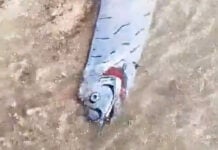It’s a yearly tradition that marks the beginning of new life or leads to the slowest traffic known to man.
Cuba’s annual crab migration was underway on April 21, 2017, and hundreds of thousands of forest crabs scuttled on roads and over buildings to lay their eggs in the Bay of Pigs.
These crabs are on a mission: to spawn in the sea. Every year, after Cuba’s first springtime rainfall, thousands of crabs migrate from the forests to the Bay of Pigs, on the country’s southern coast.
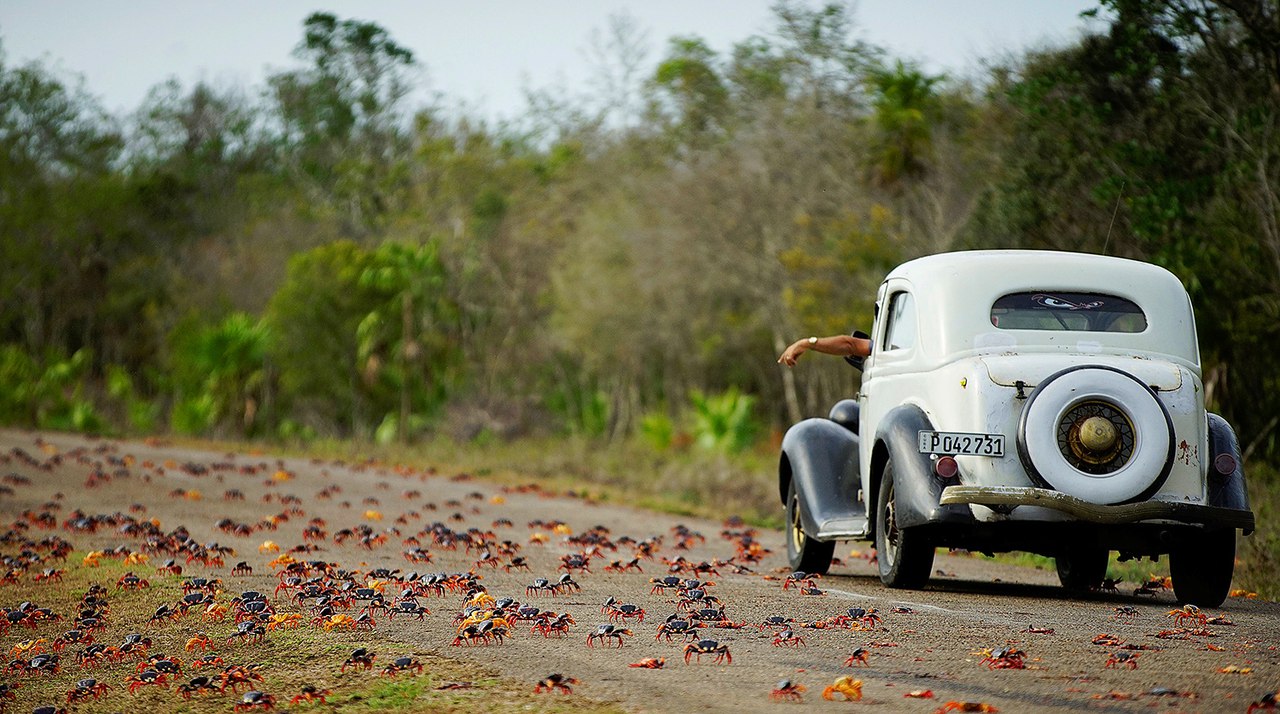
Hundreds of red, black, and yellow crabs scuttle across streets and highways, over homes and through establishments to make their way to the water.
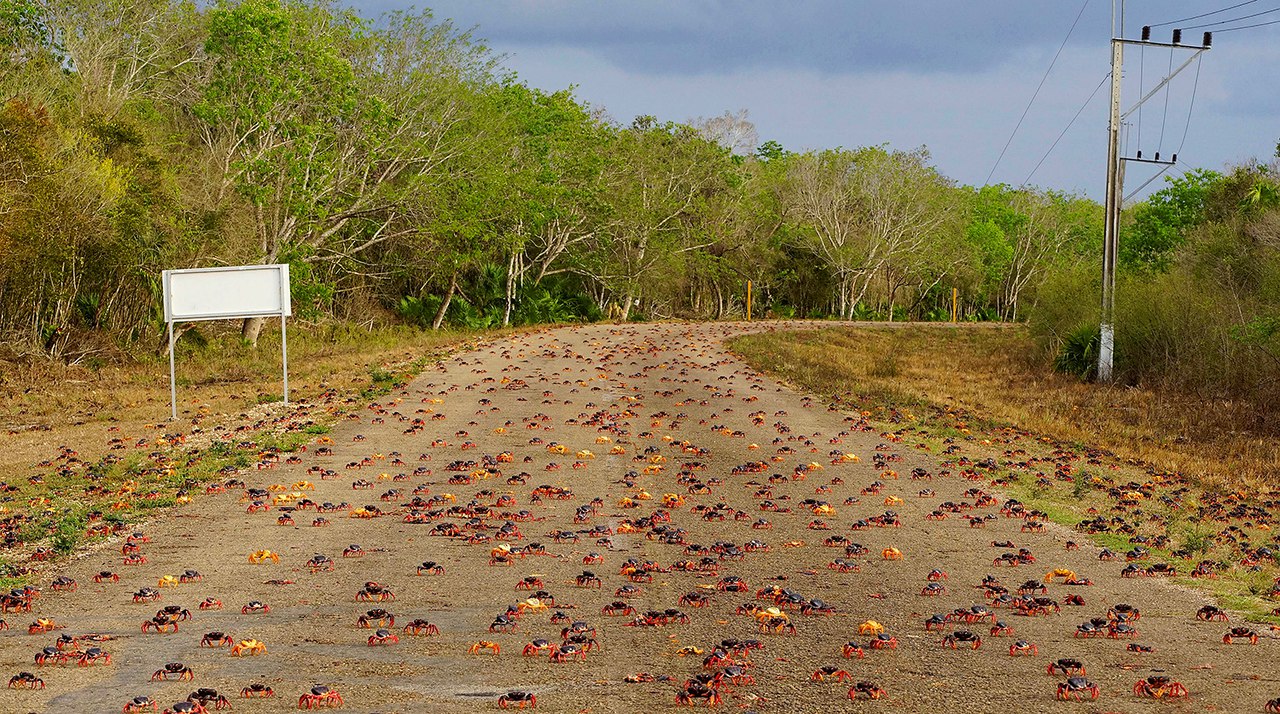
Many crabs are, unfortunately, crushed by cars before making it to their final destination. Cuban officials do their best to preserve as many as they can with “crab crossings,” since the migration has become a popular tourist attraction.
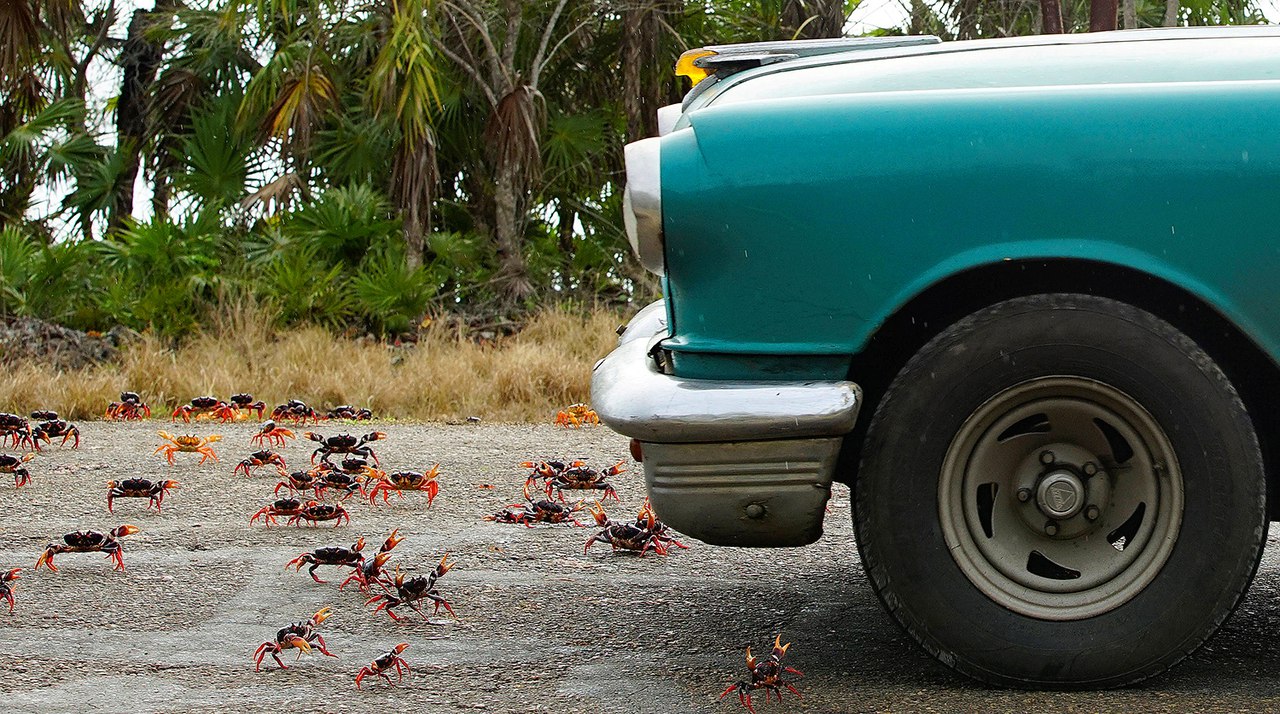
These migrations aren’t rare in Cuba; similar treks take place during sunrise and again at sunset throughout the country.
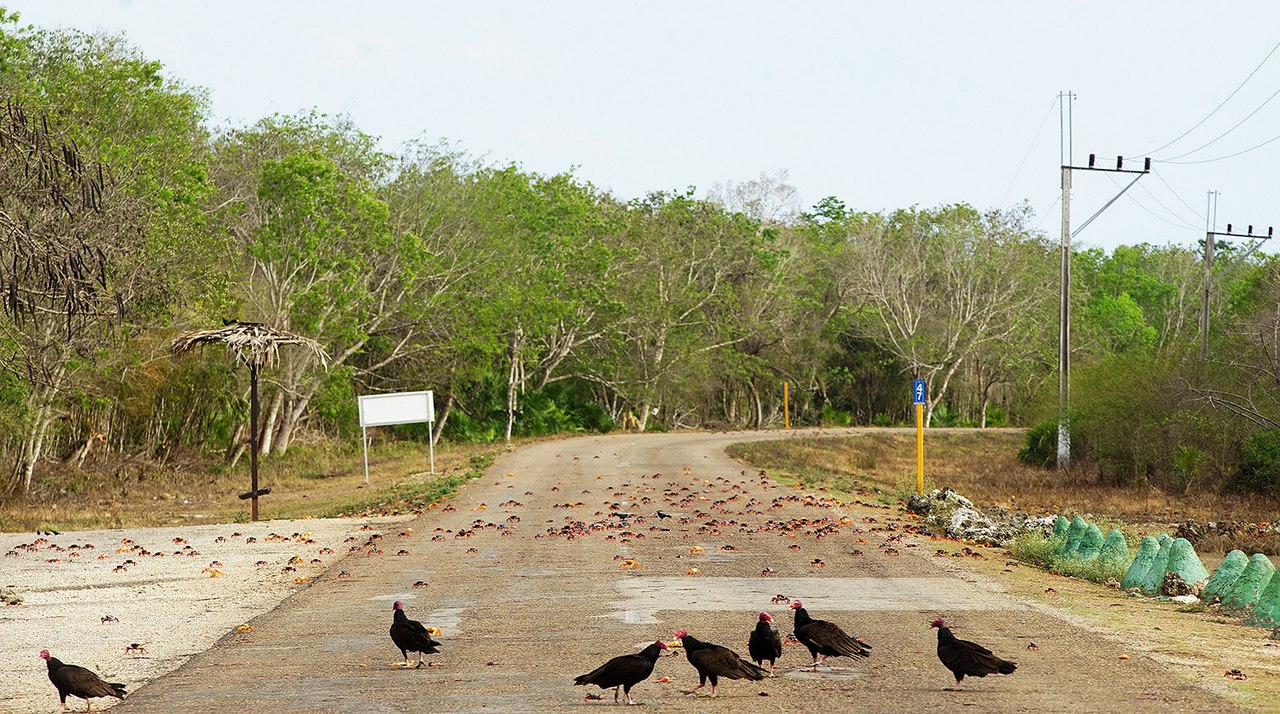
While the crabs provide a proper meal for birds and other sea creatures, Cubans won’t eat them because of a toxin in their bodies.
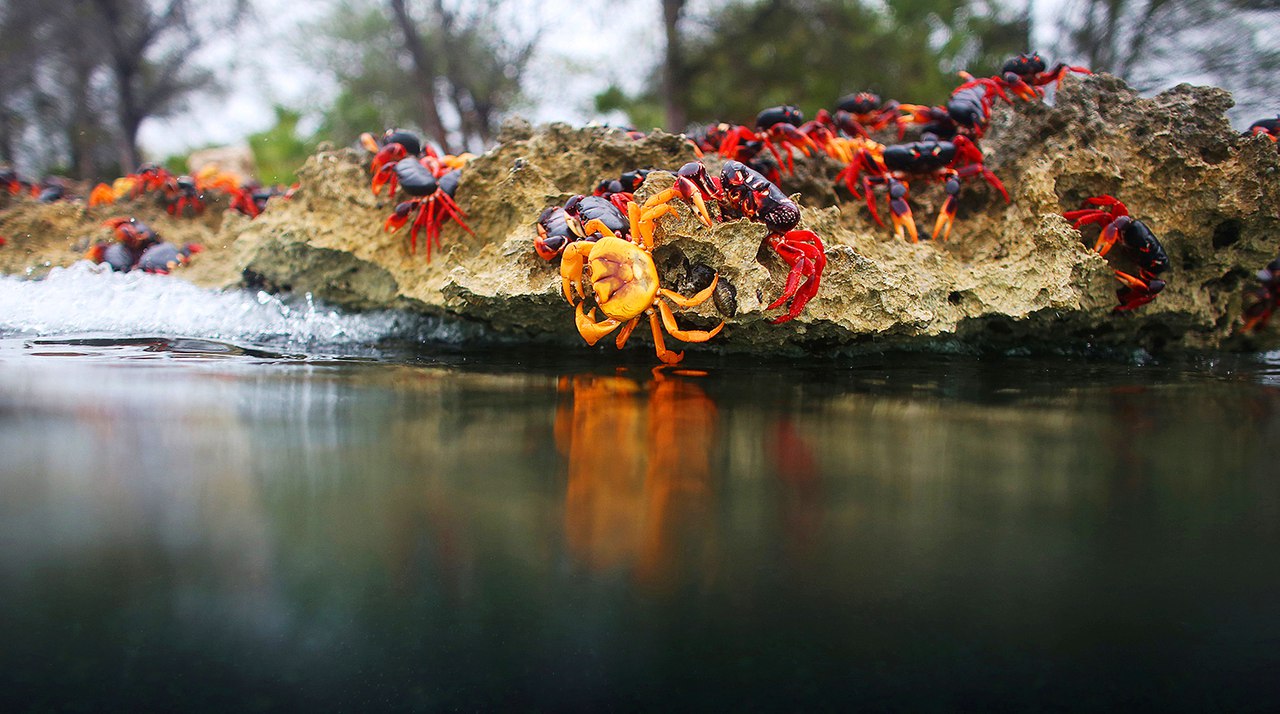
The crabs dig tunnels to remain moist, despite living in the forest. They also do their best to avoid the sun and rest in the shade on hot days; failure to do results in dehydration and death.
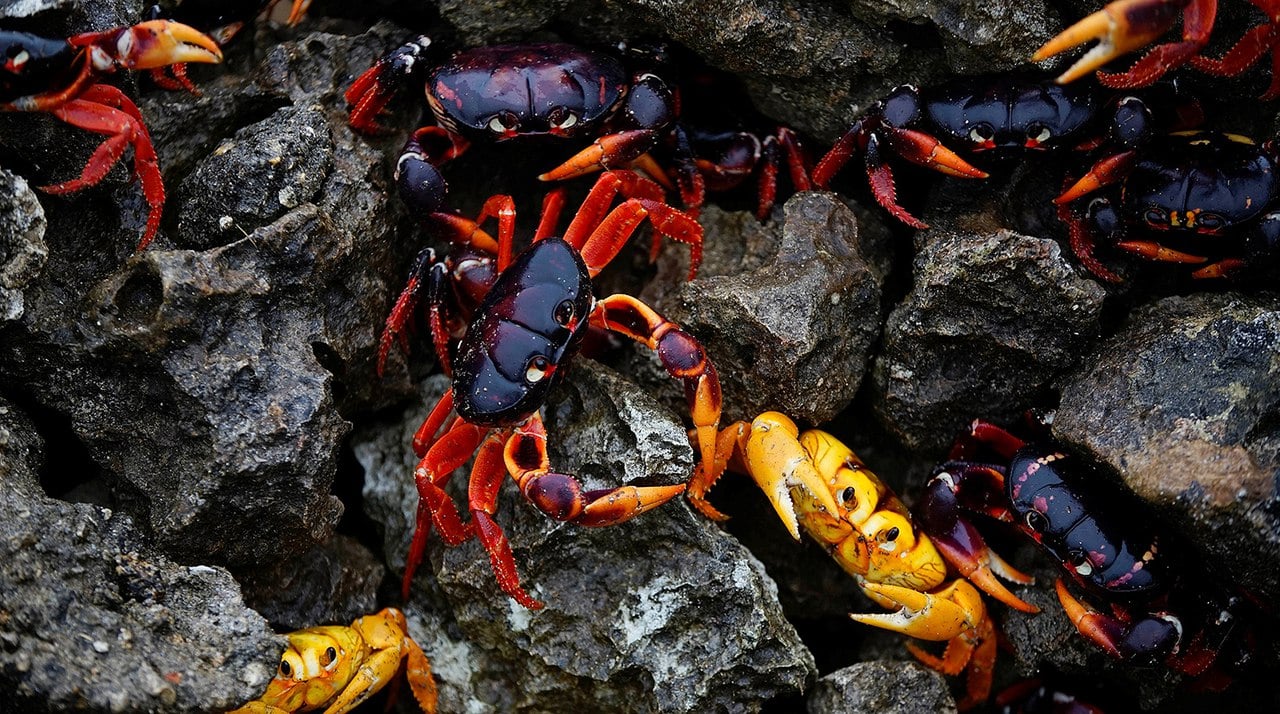
Crabs that are lucky enough to make it to the Bay of Pigs lay their eggs and release them into the water. The mating took place prior to the trek, during the spring rainfall.
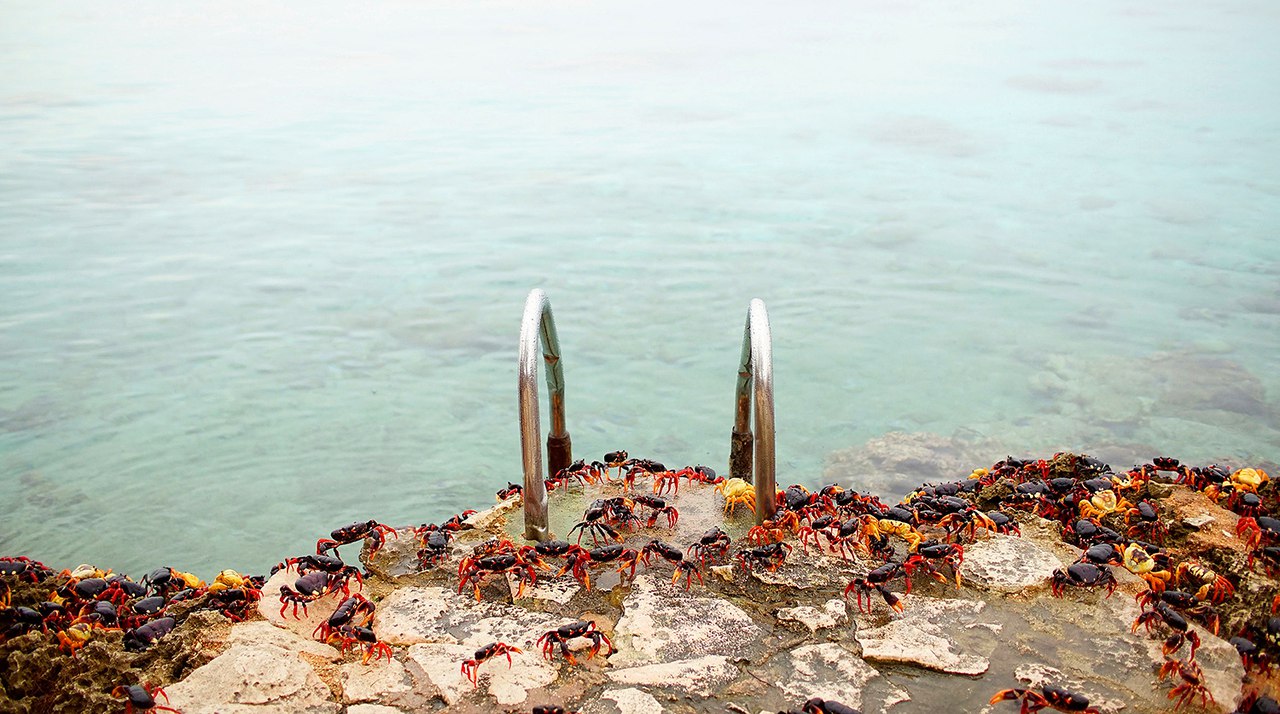
Being land animals through and through, the crabs make sure to keep their distance from the water. Contact with water, however, hatches the laid eggs immediately.
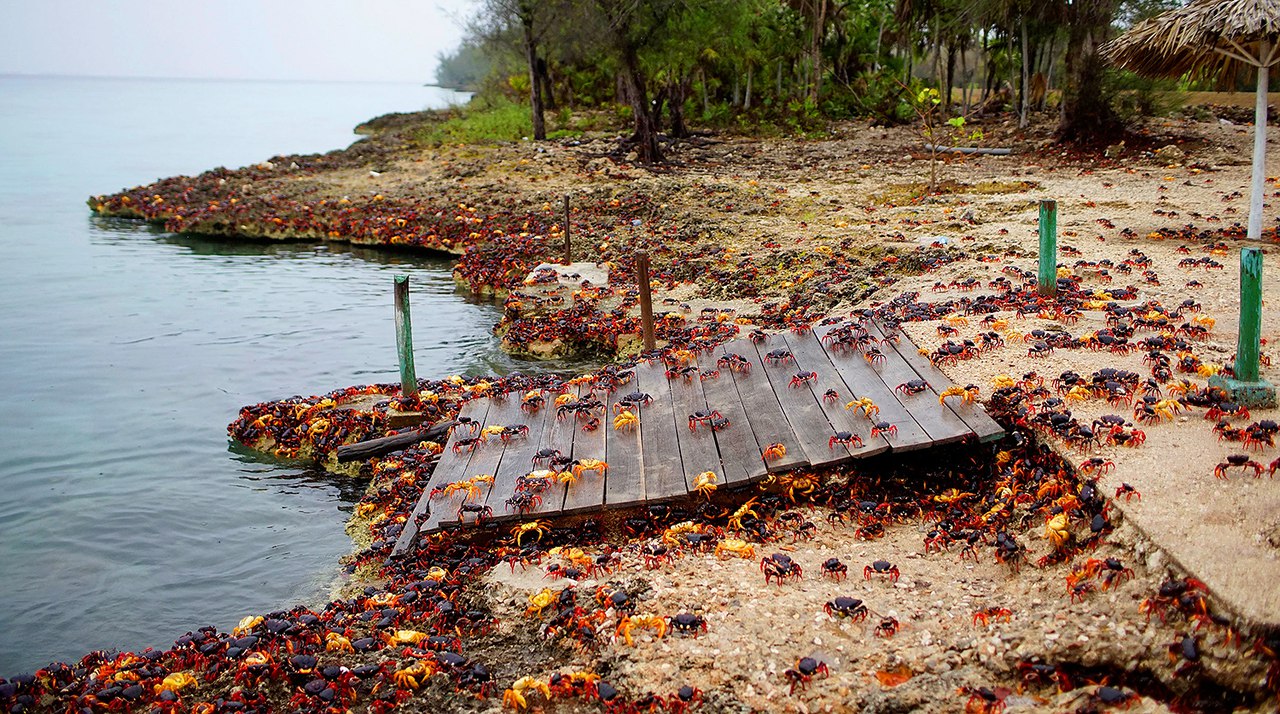
Laying eggs marks the end of the roughly six mile journey the forest crabs are thought to travel.
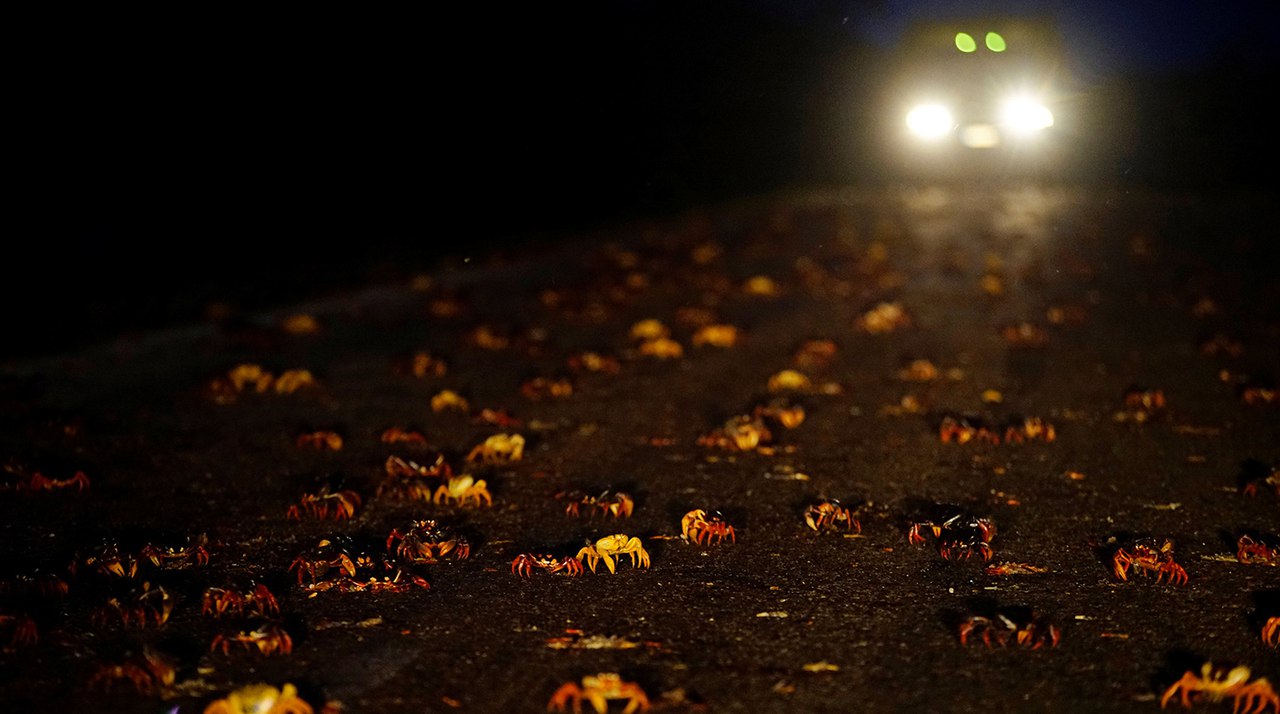
Once the eggs are hatched and the baby crabs dwell in the water for a few weeks, they make their way to the forests their parents came from.
Whether Cubans love these sea creatures or curse them for popping multiple tires, these crab moms and dads are doing what good parents-to-be do: ensuring a safe delivery for their babies.






